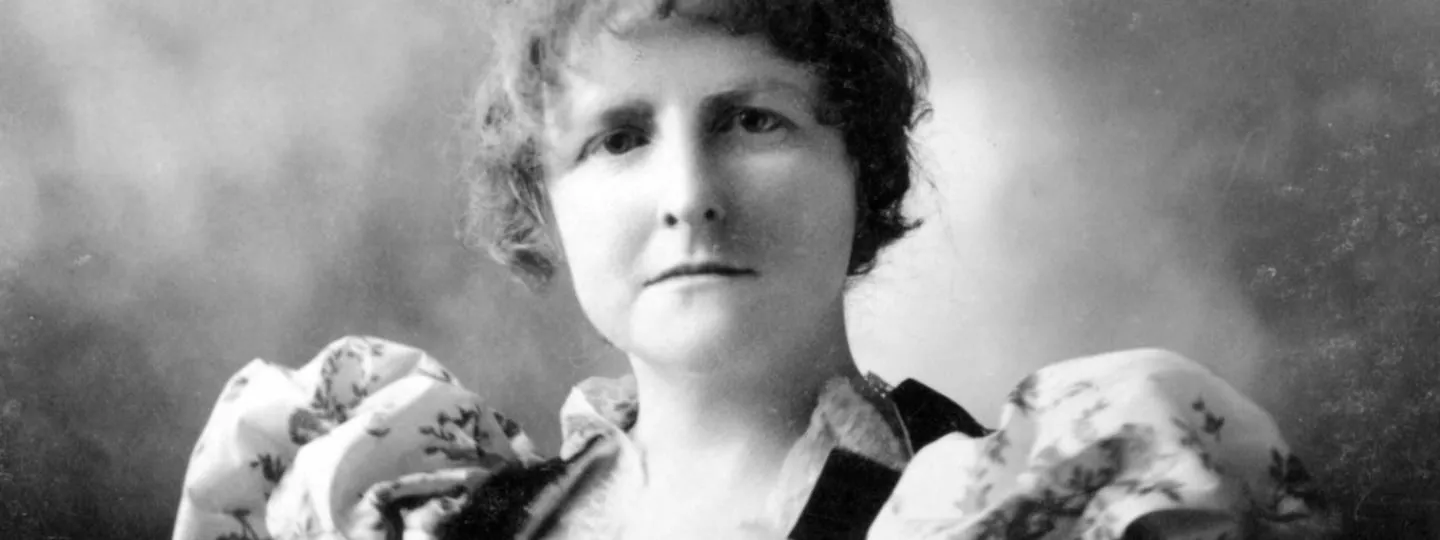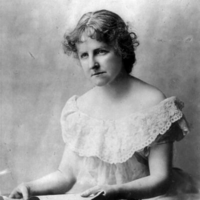
Mary E. Wilkins Freeman
Mary Eleanor Wilkins Freeman (October 31, 1852 – March 13, 1930) was a prominent 19th-century American author.
Mary Eleanor Wilkins Freeman (October 31, 1852 – March 13, 1930) was a prominent 19th-century American author.
Biography
Freeman was born in Randolph, Massachusetts on October 31, 1852, to Eleanor Lothrop and Warren Edward Wilkins, who originally baptized her “Mary Ella”. Freeman’s parents were orthodox Congregationalists, bestowing a very strict childhood. Religious constraints play a key role in some of her works.
In 1867, the family moved to Brattleboro, Vermont, where Freeman graduated from the local high school before attending, Mount Holyoke College (then, Mount Holyoke Female Seminary) in South Hadley, Massachusetts, for one year, from 1870–71. She later finished her education at Glenwood Seminary in West Brattleboro. When the family’s dry goods business in Vermont failed in 1873, the family returned to Randolph, Massachusetts. Freeman’s mother died three years later, and she changed her middle name to “Eleanor” in her memory.
Freeman’s father died suddenly in 1883, leaving her without any immediate family and an estate worth only $973. She moved in with a friend, Mary J. Wales (February 26, 1847 – December 24, 1900), and began writing as her only source of income.
During a visit to Metuchen, New Jersey in 1892, she met Dr. Charles Manning Freeman, a non-practicing medical doctor seven years younger than she. After years of courtship and delays, the two were married on January 1, 1902. Immediately after, she firmly established her name as “Mary E. Wilkins Freeman”, which she asked Harper’s to use on all of her work. The couple built a home in Metuchen, where Freeman became a local celebrity for her writing, despite having occasionally published satirical fictional representations of her neighbors. Her husband suffered from alcoholism and an addiction to sleeping powders. He also had a reputation for driving fast horses, and womanizing. He was committed to the New Jersey State Hospital for the Insane in Trenton, and the two legally separated a year later. After his death in 1923, he left the majority of his wealth to his chauffeur and only one dollar to his former wife.
In April 1926, Freeman became the first recipient of the William Dean Howells Medal for Distinction in Fiction from the American Academy of Arts and Letters.
Freeman suffered a heart attack and died in Metuchen on March 15, 1930, aged 77. She was interred in Hillside Cemetery in Scotch Plains, New Jersey.
Writing
Freeman began writing stories and verse for children while still a teenager to help support her family and was quickly successful. Her career as a short story writer launched in 1881 when she took first place in a short story contest with her submission “The Ghost Family.” When the supernatural caught her interest, the result was a group of short stories which combined domestic realism with supernaturalism and these have proved very influential. Her best known work was written in the 1880s and 1890s while she lived in Randolph. She produced more than two dozen volumes of published short stories and novels. She is best known for two collections of stories, A Humble Romance and Other Stories (1887) and A New England Nun and Other Stories (1891). Her stories deal mostly with New England life and are among the best of their kind. Freeman is also remembered for her novel Pembroke (1894), and she contributed a notable chapter to the collaborative novel entitled The Whole Family (1908).
Through her different genres of work including children’s stories, poems, and short stories, Mary Wilkins Freeman sought to demonstrate her values as a feminist. During the time which she was writing, she did this in nonconventional ways; for example, she diverged from making her female characters weak and in need of help which was a common trope in literature. Through characters such as Louisa in her short story: “A New England Nun,” Freeman challenges contemporary ideas concerning female roles, values, and relationships in society. Also, Freeman’s short story “The Revolt of Mother illustrated the struggles of rural women and the role they played within their families. “The Revolt of Mother” initiated the discussion on the rights of rural woman, went on to inspire many more pieces discussing the lack of control rural woman had over families finances, and looking to improve the structure of farm families in the early twentieth-century.
The one-act opera The Village Singer by Stephen Paulus was adapted from a Freeman short story; it was commissioned by Opera Theater of Saint Louis, and was premiered in 1979.


